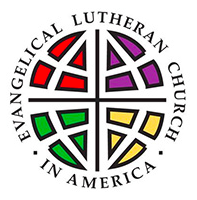
Here Am I, Send Me … Maybe?
May 26, 2024
Holy Trinity Sunday
Text: Isaiah 6:1-8
Pastor Jean M. Hansen
Here is a piece of advice … before being too quick to say, “Here I am, God, send me,” you might want to find out what exactly it is God wants you to do. Isaiah of today’s Old Testament reading probably wished he had done so, but his experience of encountering God was so overwhelming that his not thinking to inquire is understandable.
In today’s reading from Isaiah 6, the Prophet himself describes his vision. It coincided with a significant moment in Judah’s history, the death of a long-reigning, respected king. Israel had prospered during King Uzziah’s rule. In other words, it was a time of transition, perhaps even upheaval.
In his vision, Isaiah saw Yahweh seated on a throne, high and exalted, except that Isaiah saw was only the hem of the Lord’s robe, and it filled the temple. This is a scene of awe. This week I was at a meeting at St. Paul Lutheran Church in Massillon. That sanctuary is something to behold – it’s a massive, gothic structure with towering arches, soaring ceilings and seating for hundreds. If you haven’t seen that worship space, think of St. Bernards downtown or, if you’ve been in Europe or Rome, the breath-takingly huge and majestic cathedrals there (I think of Sagrada Familia in Barcelona, Spain), all built with a desire to dwarf humans and magnify God, whose hem would barely fit in such a colossal place.
That was Isaiah’s experience, but there was more; the Lord was not alone. There were seraphs, each with six wings; we don’t know exactly what his creature is; the Hebrew words means something like fiery, so perhaps it was somewhere between a dragon and a flame-throwing angel. Since their eyes are covered to keep from seeing the Lord, they must have sensory ability, like bats, to keep from crashing into one another. So, fire-breathing bats, perhaps?
These creatures were proclaiming, “Holy, holy, holy is the Lord of hosts; the whole earth is full of his glory.” (We read this text on Holy Trinity Sunday because those three holies are thought to refer to the Trinity.) They “sang” in such booming voices that the thresholds shook, and smoke filled the room. No doubt Isaiah was shaken too; his response was to repent, saying, “Woe is me! I am lost, for I am a man of unclean lips, and I live among a people of unclean lips; yet my eyes have seen the King, the Lord of hosts.”
He probably expected to die, having seen the Lord, even if it was only the Lord’s hem. But instead, Isaiah experienced redemption; his sin and guild were burned away. Then he heard God ask, “Whom shall I send, and who will go for us?” (Note the “us”, another reference to the Trinity.) He responded, “Here am I, send me!” Perhaps he should have found out exactly what God had in mind before giving that response.
We did not read the conclusion of this narrative found in verses 8-13, which tells the rest of the story. This is, my friends, a lesson in the importance of context and in not picking out a “feel good” phrase from scripture without checking to see if that is what it really is. Without verses 8-13, responding to God’s call sounds more glorious than might be the case. Listen to what God tells Isaiah to do: “Go and say to this people: ‘Keep listening, but do not comprehend; keep looking, but do not understand.’ Make the mind of this people dull, and stop their ears, and shut their eyes, so that they may not look with their eyes, and listen with their ears, and comprehend with their minds, and turn to be healed.”
Excuse me??? Isaiah was supposed to preach in such a way that his hearers would not be able to comprehend just what God had in mind for them. Now… I may do that…but not on purpose! Isaiah’s response this time is not, “Here am I, send me,” but, “How long, Lord?”
God replied, “Until cities lie in waster without inhabitants, and houses without people, and the land is utterly desolate….” Or, as commentator John Holbert explains, “Isaiah is called by his God to make the people of Israel unaware of the terrible spot they are in. Due to Isaiah’s ministry of the word, Isarel will inexorably be decimated, annihilated, sent off into exile. Because of him, they will not be able to ‘turn and be healed’, the result of his work will be disaster.” (1)
That’s not a mission anyone would want to undertake … except … there is a glimmer of hope. The passage describes Israel as the stump of a tree that has been felled and burned, but the final verse is: “The holy seed is its stump.” Something new can grow; repentance, healing and starting again are possible.
Sometimes that is how people find God, whether it is an individual or a congregation that have gotten off track and needs to be realigned. I’ve heard it referred to as “hitting bottom”, which implies that there is no way to go but up and there is no path to take but change. There’s no doubt that that is a difficult position to be in, and a painful position to encourage, as Isaiah was called to do. Had he known he might have said, “Choose anybody else,” as Moses did in an earlier generation.
This is the position in which the Christian church of the 21st century finds itself, at least those who are a part of what have been called “main-line denominations.” While we may feel there is nothing of which we should repent, the fact is that worship attendance and participation in the life of the church continues declining and there are not enough pastors to go around. The bottom is getting closer and closer, which means that change is no longer an option, it’s required if the Good News of God’s grace in Jesus is to be shared.
But the holy seed is its stump and there is always hope. For us, that seed sprouting from the stump of Jesse – an image found elsewhere in Isaiah – is Jesus who was willing to die to save us from sin, and then empower us by the Holy Spirit to proclaim that Good News and live out the gift of grace. Quoting commentator Stan Mast, “What we have in Isaiah 6 and in the Gospel (for God so loved the world…) is a God who would rather die than let sin and evil and rebellion win and finally ruin his good creation and beloved children.” (2)
I am so thankful that is the message we are called to bring, although, doing so is not always easy and requires insight and sacrifice. Still, may we join Isaiah is saying, “Here am I, send me,” send us. AMEN
-
“Choose Somebody Else! Reflections on Isaiah 6:1-8 for Trinity Sunday” by John Holbert, May 31, 2015
-
“Isaiah 6:1-13 Commentary” by Stan Mast, February 10, 2019, www.cepreaching.org






